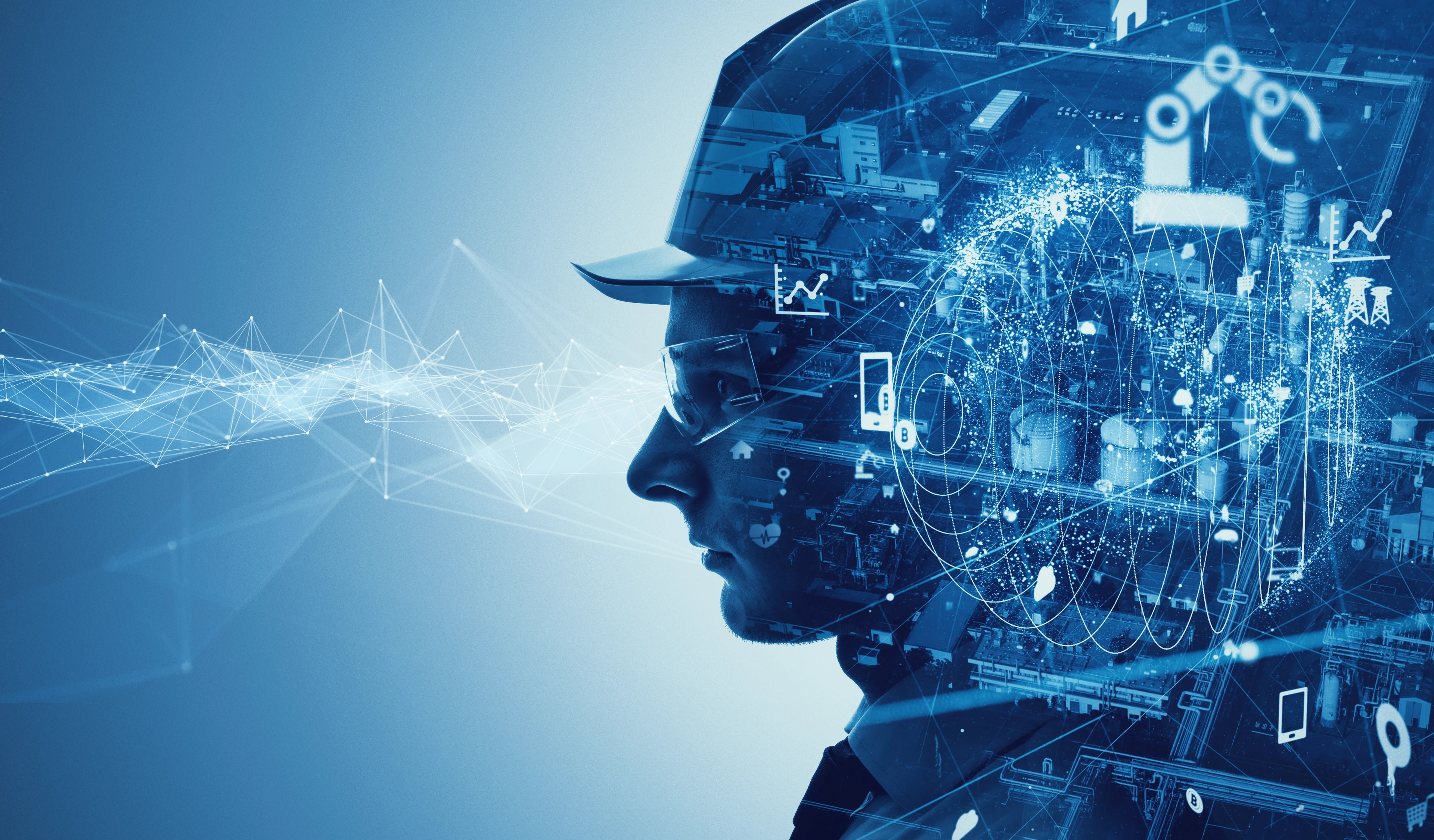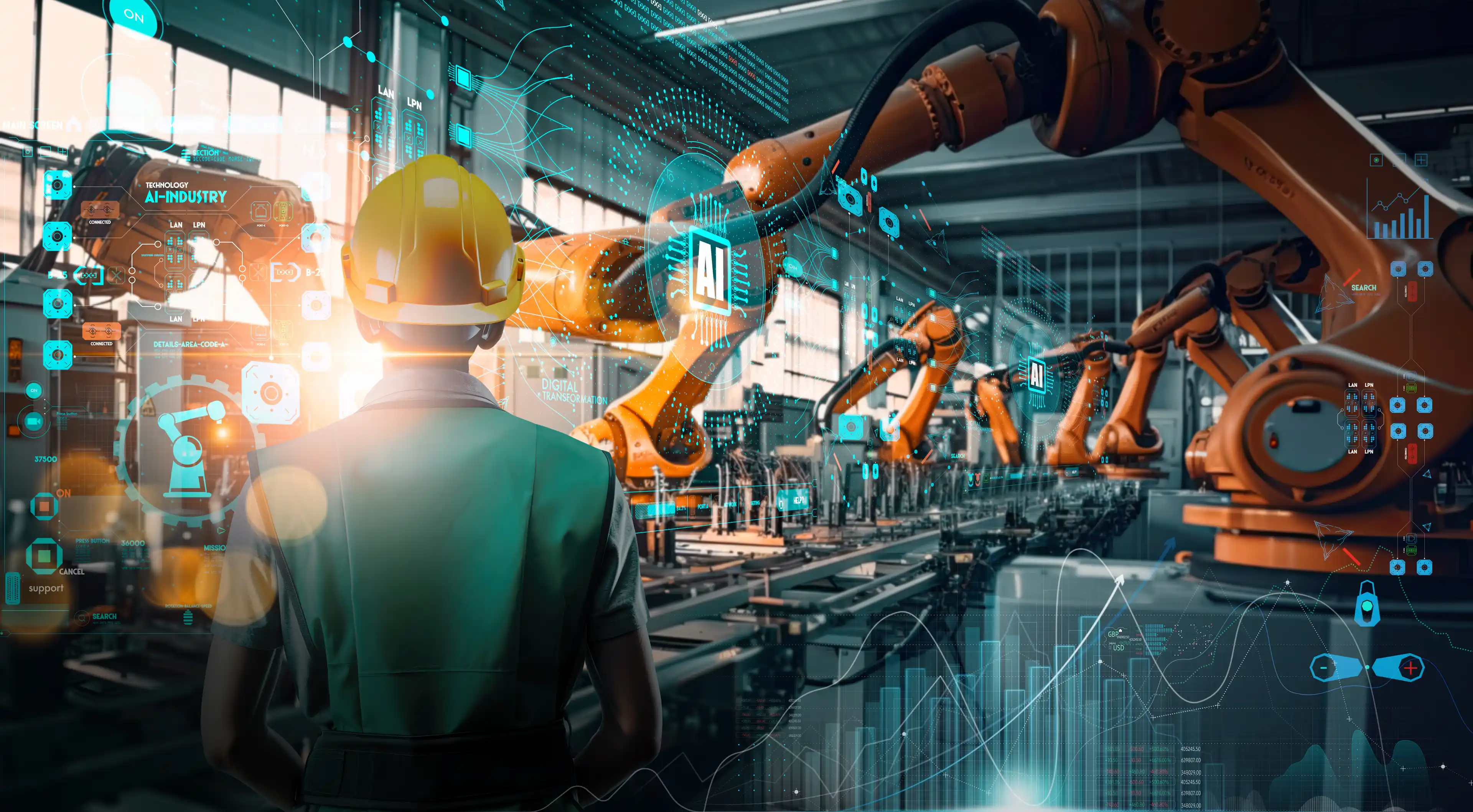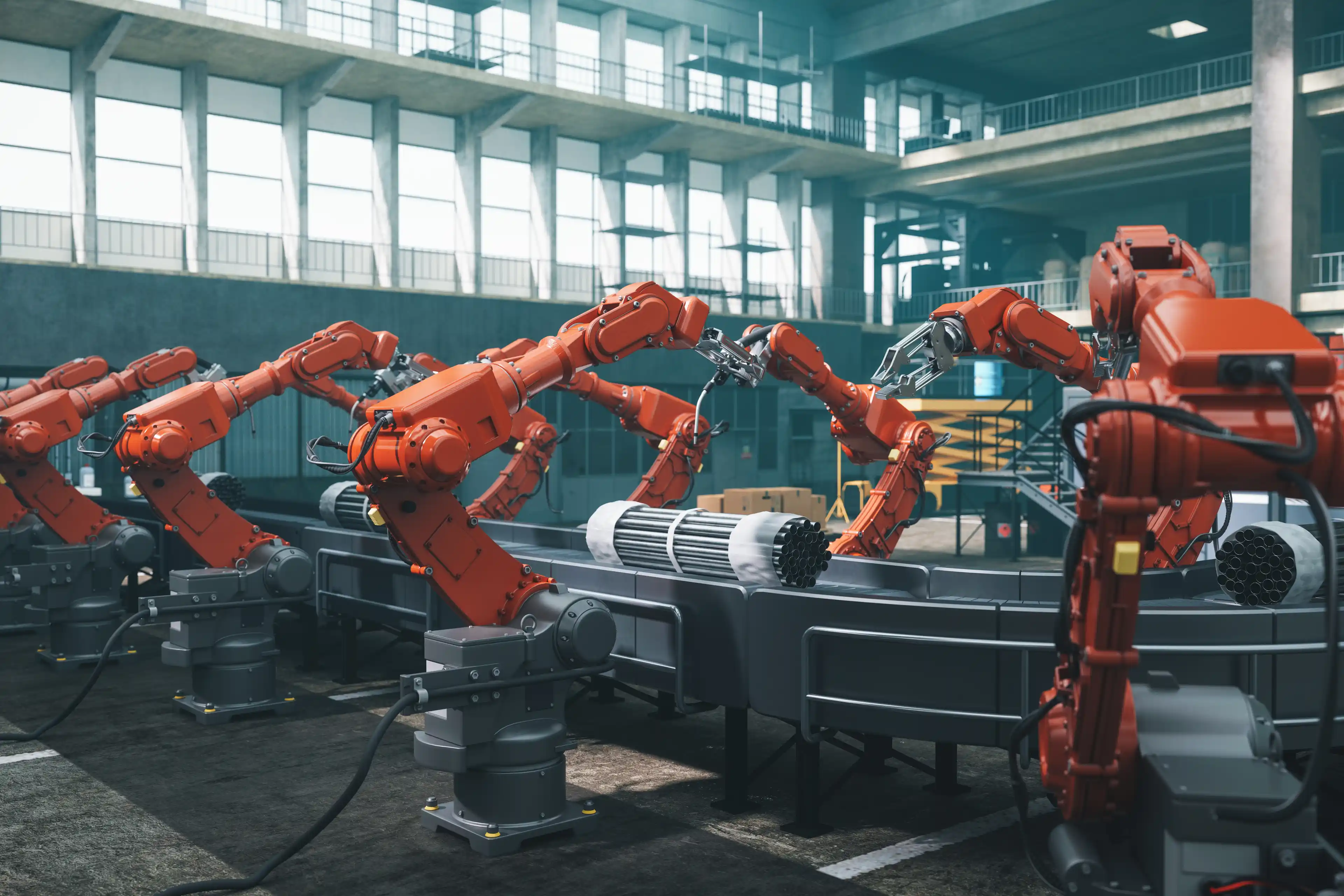
Enginuity Future Skills Hub
Engineering and manufacturing is rapidly transforming, making it hard for employers to know what skills they need to keep pace with change. The Enginuity Future Skills Hub aims to demystify the skills, trends and transitions reshaping industries within the UK’s engineering and manufacturing sector.

What is machine learning?
Machine learning is a branch of artificial intelligence that enables computers to improve from experience, learning from historical and other ‘real-world’ data to analyse and make predictions.

Machine learning explained
How is machine learning used?
Machine learning has various applications in manufacturing and engineering, ranging from optimising production and processes, to enhancing safety and personalising products and services. Examples include:
- Enabling robots to learn and adapt
- Analysing historical data for predictive maintenance and energy consumption patterns
- Detecting anomalies and identifying root causes in manufacturing processes
- Monitoring health and safety conditions in manufacturing environments.
Benefits of machine learning
Machine learning and Industry 4.0
Machine learning and sustainability
What skills might you need?
Skills needed for machine learning include proficiency in data science, statistics, and programming languages such as Python or R. Additionally, expertise in machine learning algorithms, deep learning frameworks, and data visualisation tools is essential for developing and deploying machine learning models in engineering and manufacturing contexts.
Other specific skills include:
- Data analysis
- Artificial intelligence
- Programming/software development
- Data science
- Solution architecture
- Systems integration
- Modelling
- Innovation
- Research
- Governance
- Problem management
- Learning delivery
- Data management
- Security

What skills might you need?
Skills needed for machine learning include proficiency in data science, statistics, and programming languages such as Python or R. Additionally, expertise in machine learning algorithms, deep learning frameworks, and data visualisation tools is essential for developing and deploying machine learning models in engineering and manufacturing contexts.
Other specific skills include:
- Data analysis
- Artificial intelligence
- Programming/software development
- Data science
- Solution architecture
- Systems integration
- Modelling
- Innovation
- Research
- Governance
- Problem management
- Learning delivery
- Data management
- Security
What skills might you need?
While the core skills for machine learning will not be required for every individual in a company, fostering a general understanding of machine learning concepts and promoting a culture of data literacy can be beneficial. Machine learning skills might be distributed across these different levels and functions:
- Machine learning specialists (data scientists, engineers)
- Domain experts (engineers, quality control, maintenance)
- Management (foundational understanding of ML concepts)
- Business analysts and operations managers
- IT professionals
- Training and development professionals
- Ethics and compliance officers
- Human resources professionals
- General workforce (data literacy)
Useful resources

Want to upskill?
You will find a list of online courses focusing on machine learning by following this link to MOOC
Read more
Digital Catapult
The Digital Catapult is accelerating the ethical and responsible adoption of artificial intelligence and machine learning. Find a range of resources, case studies and other information on their website.
Read more
Dig a bit deeper?
Visit Skills for the Information Age (SFIA), the global skills and competency framework for the digital world.
Read more